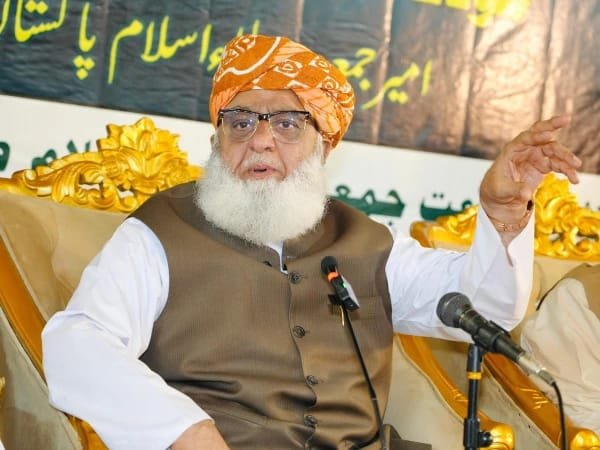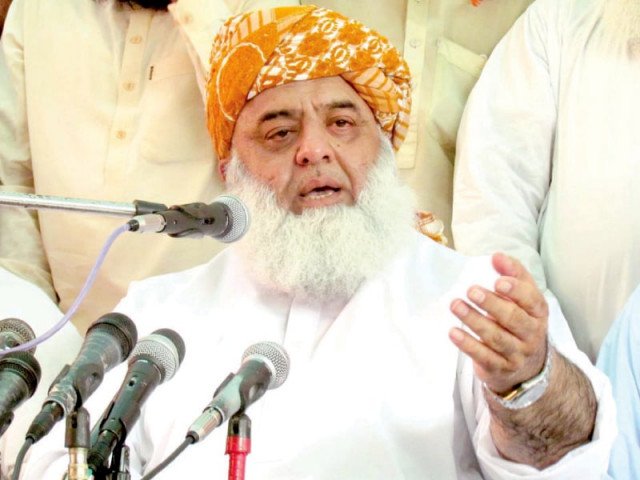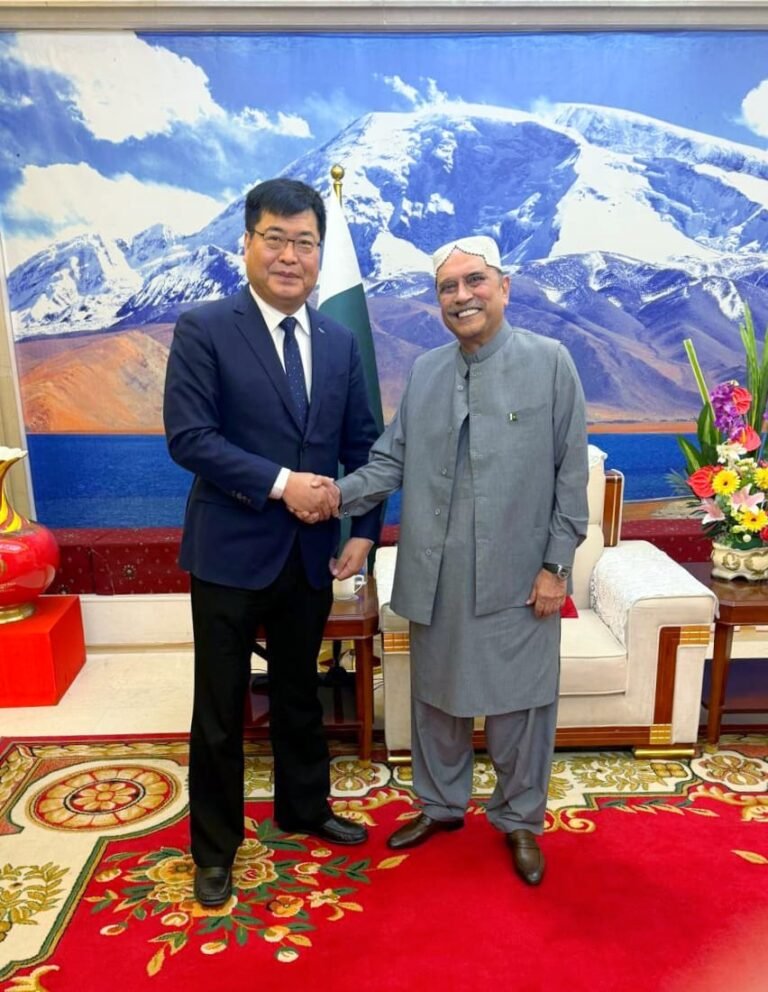Maulana Fazl-ur-Rehman Accuses State of Blocking CPEC, Condemns ‘Usurping’ of Provincial Rights
Peshawar,(International Desk) — Jamiat Ulema-e-Islām-Fazl (JUI-F) chief Maulana Fazl-ur-Rehman lashed out at the federal and provincial leadership on Sunday, accusing them of allowing foreign and domestic forces to “stop” the China-Pakistan Economic Corridor (CPEC) and of undermining provincial rights through controversial legislation. Speaking to his party in Peshawar, Fazl said Pakistan’s security and civil order…
Peshawar,(International Desk) — Jamiat Ulema-e-Islām-Fazl (JUI-F) chief Maulana Fazl-ur-Rehman lashed out at the federal and provincial leadership on Sunday, accusing them of allowing foreign and domestic forces to “stop” the China-Pakistan Economic Corridor (CPEC) and of undermining provincial rights through controversial legislation.
Speaking to his party in Peshawar, Fazl said Pakistan’s security and civil order had collapsed in parts of the country and claimed that militants had not arrived of their own accord but were “brought in” by conspiratorial forces. He warned that blocking CPEC projects was tantamount to blocking Pakistan’s economic future — a charge he placed squarely at the feet of those he accused of serving foreign interests.
Fazl also renewed his party’s fierce objection to moves on mineral governance, saying attempts to alter the legal framework for mines and minerals amounted to seizing provincial resources. He vowed that JUI-F would resist any law that, in his view, deprived provinces and local communities of their rightful control over natural resources. Similar objections to the Khyber Pakhtunkhwa mines and minerals proposals have been voiced by multiple regional parties and civil society groups earlier this year.
The JUI-F leader accused the establishment and political rivals of collaborating to weaken provincial mandates, and claimed repeated “tampering” with electoral mandates and local authority. He framed his party’s stance as a constitutional defence rather than an endorsement of militancy, saying JUI-F favoured political and legal struggle over armed confrontation.
Background: Islamabad and Beijing continue to discuss and advance CPEC projects, including recent agreements and planning for new infrastructure and financing arrangements, even as domestic political disputes over resource control and governance persist. Analysts say such domestic friction — especially over provincial autonomy and resource laws — complicates implementation of large infrastructure programmes that require stable political consensus.







